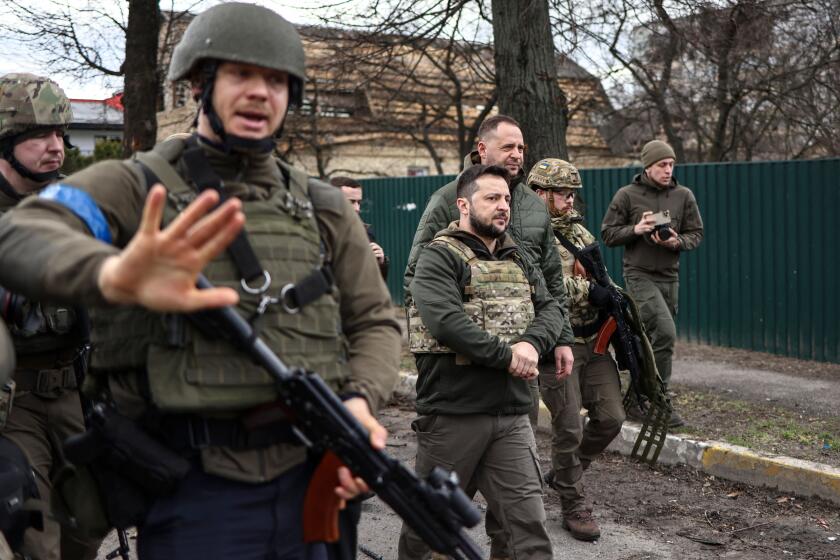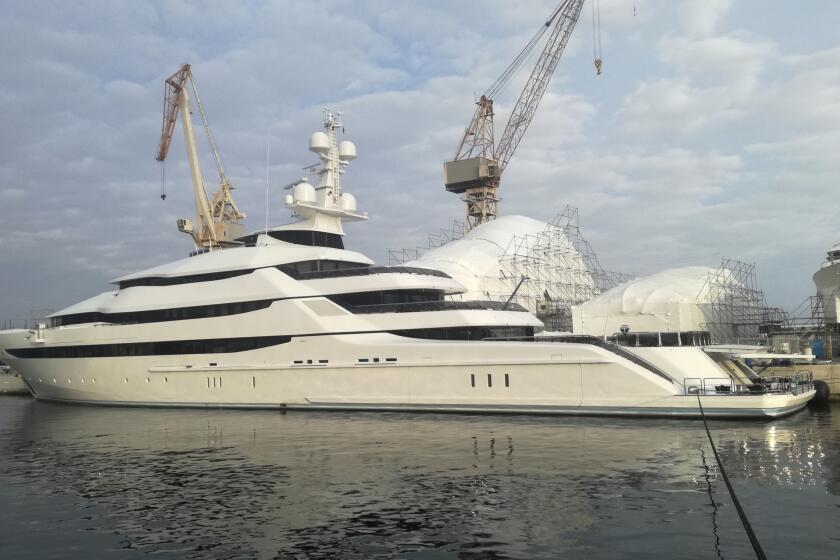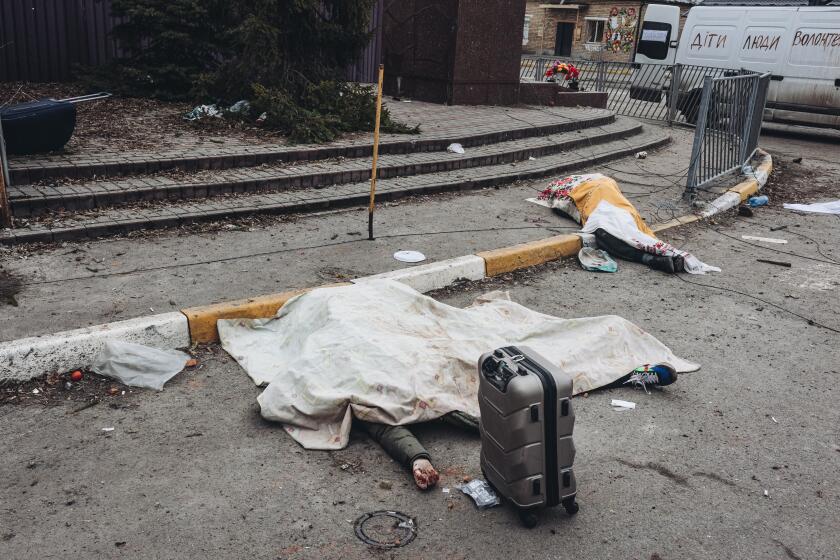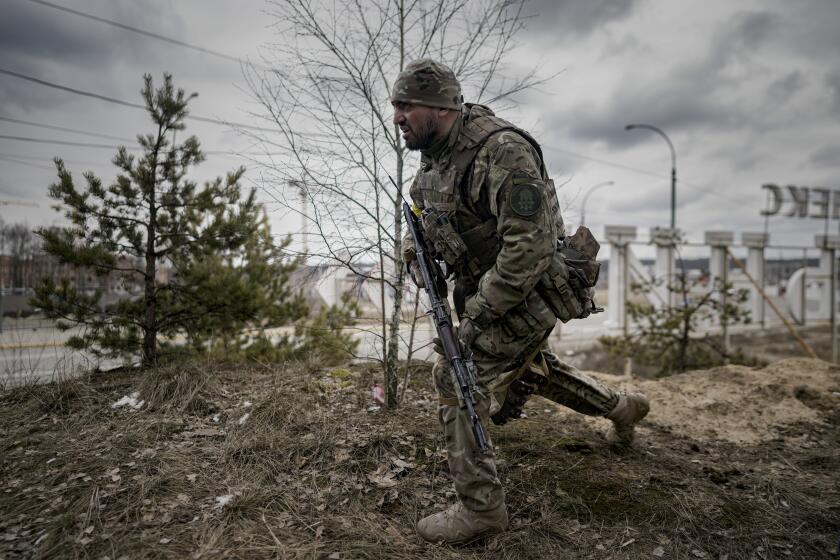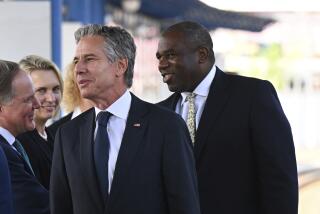Britain’s response to war in Ukraine isn’t Boris Johnson’s finest hour, critics say
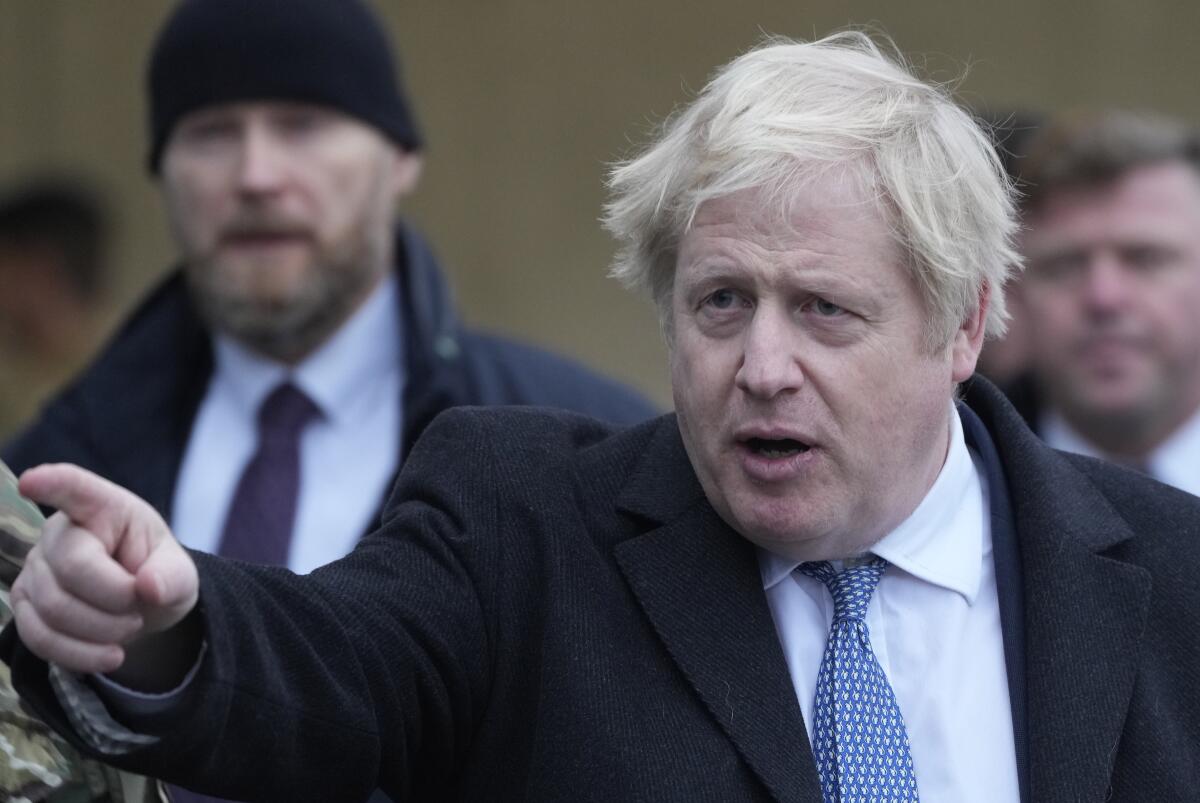
LONDON — He invokes Churchill’s wartime spirit, defends cherished British values of democracy and national sovereignty and gets a standing ovation when he addresses a jam-packed House of Commons.
Alas for Prime Minister Boris Johnson, the adulation isn’t of him. Instead, it’s being directed at the defiant president of Ukraine, Volodymyr Zelensky, whom Britons of all stripes are lionizing as a hero while at the same time blasting their own somewhat disheveled leader for his response to Russia’s invasion of Ukraine.
Since the war began Feb. 24, Johnson has tried to burnish his reputation as an international statesman, pledging to help Ukraine and its people by providing arms and offering moral support alongside the U.S and other Western nations. Johnson and Zelensky are reportedly speaking to each other almost every day, having drawn close since the British leader visited Kyiv last month, before Russia’s incursion.
A woman reacts as she stands in front of a house burning after being shelled in the city of Irpin.
But Johnson’s government has come under withering fire — including from some within his own Conservative Party — for what critics say is a slow and inadequate response to the biggest ground war in Europe in 75 years.
As Poland, Hungary and neighboring countries scrambled to absorb an astonishing 2 million Ukrainian refugees, Britain initially offered visas to 50. While the U.S. and the European Union imposed heavy sanctions on a number of Russia’s wealthiest tycoons, including the seizure of a $118-million yacht in France, Johnson’s administration was accused of dragging its feet on punishing oligarchs — and reminded of the cozy ties and hefty donations his party has enjoyed when it comes to Moscow-connected billionaires.
Unusually, ridicule of Johnson’s government has sprung up on both sides of the political divide. In perhaps the most crucial barometer of public opinion, Britain’s outspoken newspapers have been uncharacteristically aligned in their calls for more decisive action from political leaders, particularly on making it easier for Ukrainian refugees to enter the country.
A sanctions regime aimed at putting pressure on Russia’s wealthiest citizens has put a spotlight on the global mega-yacht trade.
“Fix the visa shambles,” said an editorial in the conservative Daily Mail, which has often taken an anti-immigrant stance. A headline in the left-leaning Daily Mirror accused the ruling Conservatives of “shaming Britain.”
On Thursday, Johnson’s government announced that the visa application process for Ukrainians would be simplified and some requirements scrapped. The U-turn came amid outrage over stories of people who fled the war in Ukraine only to find themselves caught in a bureaucratic quagmire in their attempts to get to Britain, where some of them already had family.
Home Secretary Priti Patel had boasted of a “surge team” of British officials in the French port city of Calais, across the English Channel, to handle the newcomers. In reality, refugees carrying their meager belongings were met by three British officials at a trestle table in a deserted departure hall, who handed out potato chips and Kit Kat bars and told the war-weary arrivals to make their way to Paris, 200 miles away, for an interview.
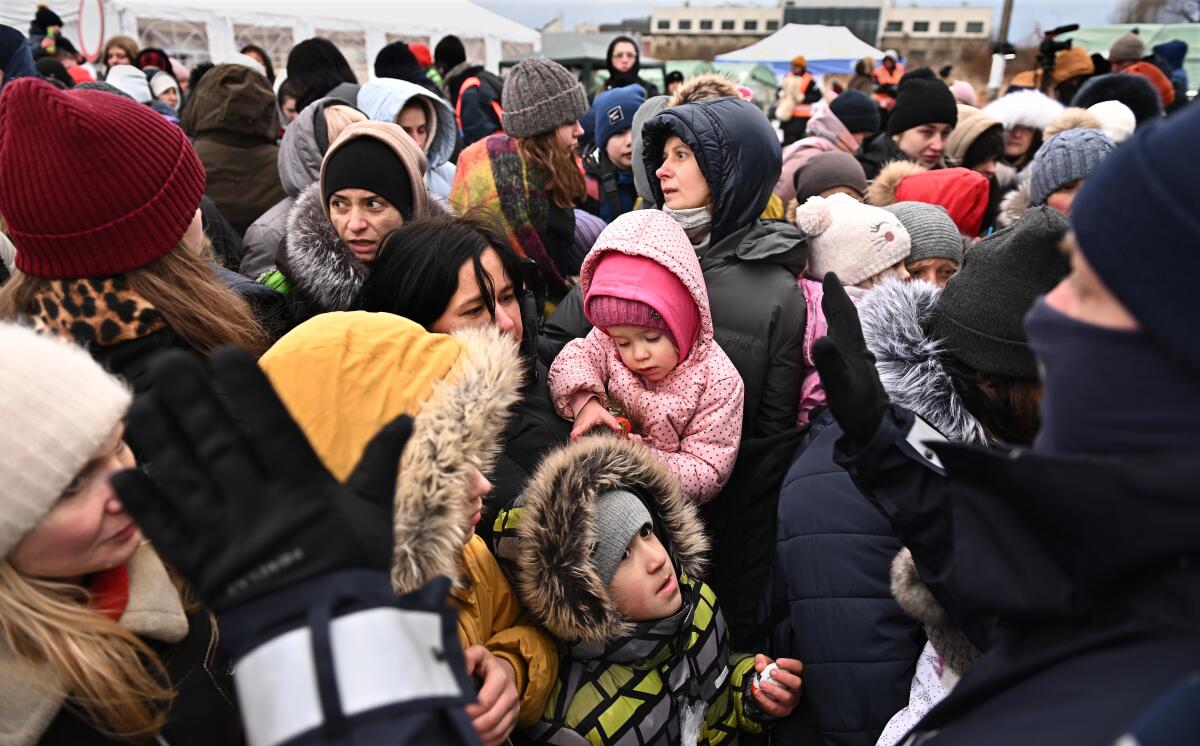
Immigration continues to be a divisive issue here, and curbing the free movement of people was a key rallying cry for those who voted to pull Britain out of the EU. But public support for and solidarity with Ukrainians has been notable: Yellow-and-blue Ukrainian flags and ribbons fly outside houses and on car antennas.
“The situation on refugees is a real problem for the government,” said Tim Bale, a politics professor at Queen Mary University of London. “I think they are really out of tune with public opinion.”
On the same day that it said it was relaxing visa rules for Ukrainians, the government announced a freeze on the assets of seven prominent Russian businessmen — a move that also followed vocal criticism of British sluggishness compared to the U.S. and the EU.
Tatiana Perebeinis, 43, and her children, Nikita, 18, and Alise, 9, were killed along with a volunteer who was helping them flee the war in Ukraine.
Included on the blacklist was Chelsea Football Club owner Roman Abramovich, who had hastily put the storied London soccer team up for sale earlier in the week in an effort to offload his wealth. He promised to give any profits to war victims.
“There can be no safe havens for those who have supported Putin’s vicious assault on Ukraine,” Johnson said in a statement as the sanctions were announced.
That sounded to many Britons like a different tune from the one they usually hear Johnson and his party whistling about the Russian jet set. By the opposition Labor Party’s count, the Conservative Party has received donations of about $2.5 million in money linked to Russia — through people with dual British-Russian citizenship or British business interests in Russia — since Johnson became prime minister.
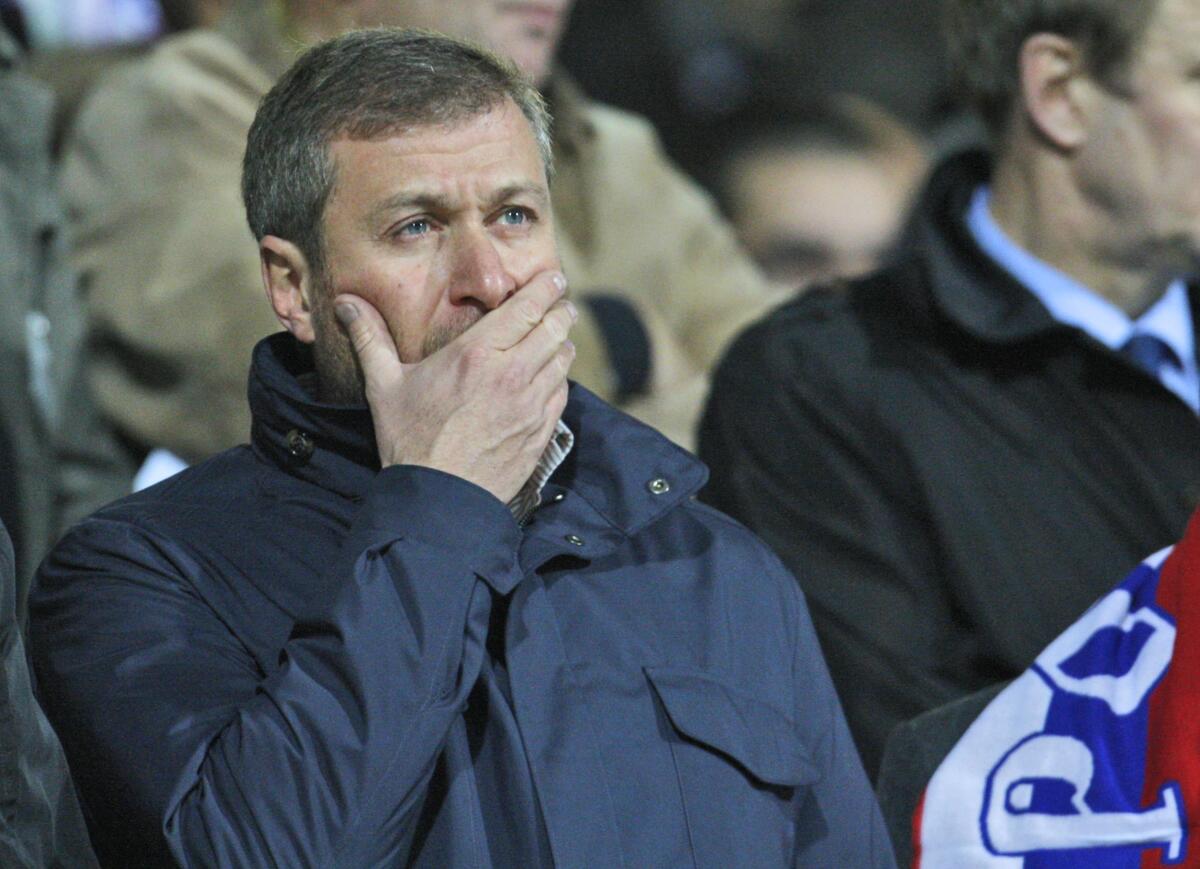
Ultrawealthy Russians have long treated London — glibly referred to as “Londongrad” — like a luxury playground, skewing the already-expensive property market and sending their children to Britain’s exclusive private schools.
“There have always been links between the elite, particularly Conservatives, and very wealthy Russian billionaires and oligarchs,” said Simon Griffiths, a professor of politics and public policy at Goldsmiths, University of London.
That Johnson has been forced to sanction people whom some in his party previously have had close relations with is “an uncomfortable position to be in,” Griffiths said.
During a heated parliamentary debate, Labor home affairs spokeswoman Yvette Cooper said the government’s failure to move more quickly on imposing sanctions was giving people “time to move their wealth” elsewhere.
Low morale, logistics problems and resilient Ukrainian soldiers are slowing advances by Russian forces toward Kyiv as the war goes into a third week.
Veteran Conservative lawmaker David Davis countered by warning that tougher sanctions would not only hurt the Russian economy but would “also do some harm to us” through less trade, fewer jobs and higher inflation.
One thing Johnson can be grateful for: The war in Ukraine has diverted attention from a scandal over his behavior during the COVID-19 lockdown that threatened his hold on his job.
A few weeks ago, the newspapers here were filled with stories about booze-fueled parties that took place in Downing Street, at Johnson’s official residence and office, during the height of lockdown, including at least one gathering that Johnson himself attended. Uproar over such behavior at a time when most Britons were forbidden from visiting dying relatives caused Johnson’s approval ratings to plummet, and a vote of no confidence in his leadership was considered a matter not of if, but when.
Russia’s war on Ukraine now dominates the news agenda and has enabled Johnson to shift focus and regain some of his swagger.
News Alerts
Get breaking news, investigations, analysis and more signature journalism from the Los Angeles Times in your inbox.
You may occasionally receive promotional content from the Los Angeles Times.
“This has massively increased the likelihood he will get through the next few months and years. Two weeks ago, it didn’t look like he’d survive a week,” Griffiths said.
“Partygate” is unlikely to go away entirely. Scotland Yard is investigating whether Johnson broke his own lockdown rules, and a report on the scandal compiled by a senior civil servant is still due to be published in full. If those find willful wrongdoing, Johnson will land in hot water again.
“I don’t think what he’s done in the Ukraine crisis will give him that much credit in the bank,” Bale of Queen Mary University said, adding: “But it’s probably true that it’s given him a bit of a breather.”
Boyle is a special correspondent. Times staff writer Henry Chu contributed to this report.
More to Read
Sign up for Essential California
The most important California stories and recommendations in your inbox every morning.
You may occasionally receive promotional content from the Los Angeles Times.
